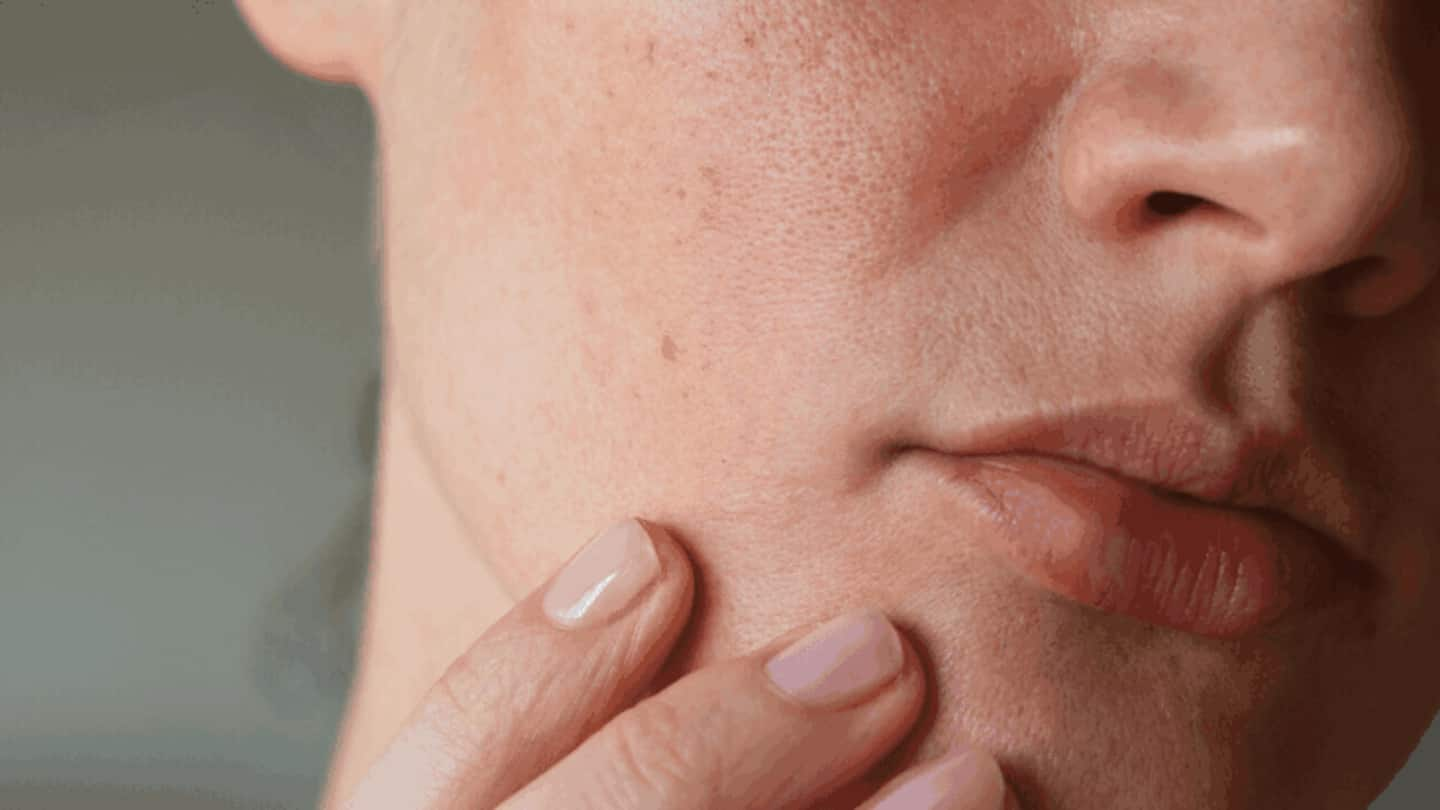
Skin care: Tips for taking care of sensitive skin
What's the story
If your skin breaks out constantly, is bumpy, reacts badly to new products, or stings, your skin is sensitive.
Other common symptoms of sensitive skin include redness, itchiness, dry patches, frequent rashes, and sensitivity to the sun.
Since this situation calls for gentle and special care, here are some basic tips that can help you look after your skin properly.
Skin test
Always do a skin test before buying a new product
As mentioned above, sensitive skin doesn't react well with many ingredients that are common in the usual skin products.
To avoid any irritation or other unpleasant symptoms, do a skin patch test before buying a product.
All you need to do is, put a small amount on your skin (preferably hands, not face) and wait for 48 hours to see if there's any reaction.
Moisturize
Dutifully moisturize your skin in morning and night
Having a proper and regular skincare regime is the most important way to take care of sensitive skin. And, no skincare routine is complete without moisturizing.
Sensitive skin needs proper moisturizing because this protects the skin from water loss and harmful environmental factors like dust, harsh wind, etc.
Dutifully moisturize your skin after a shower in the morning and before you sleep at night.
Irritants
Check the labels of skin products for these things
Your skin products play a huge role in maintaining your skin, especially in the case of sensitive skin. So how should you choose them?
Look for products that are fragrance-free, hypoallergenic, and without dyes and parabens.
Check the products for labels or product lines that are "free and clear of allergens" and "contain bare-bones ingredients." These products are usually made for sensitive skin types.
Gentle care
Carry out your skincare routine gently
Sensitive skin is more vulnerable than other skin types, so handle it with care, especially when cleansing it.
While cleansing our skin, we can be unintentionally too harsh. Since intense rubbing and tugging can make the skin more sensitive, take some precautions.
For example, while removing eye make-up, hold the soaked cotton pad over your eye a little longer instead of aggressively rubbing it.
Shower temp
Super-hot showers are not good for sensitive skin
Super-hot showers are comfortable and can always make you feel good. However, piping hot water is not good for any skin type.
Extremely hot water can take away the natural oils from your skin and leave it dehydrated. In the case of sensitive skin, these effects double up, making the skin more prone to itchiness.
So, start taking your bath with lukewarm water.